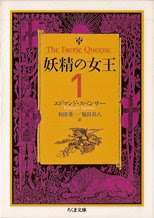I'm collecting holiday donations to finance the purchase of a Casio EX-word XD-SP6700 electronic dictionary. With this amazing device, the sort of which seems to be standard issue for every Japanese citizen, I can look up kanji simply by writing them onto a little pad with a stylus. Amazing! Until I get the cell phone that can identify them on sight, this will make my translating worlds easier. My current process is to go through the text figuring out the readings for each kanji and then to work out the grammar. It takes forever. Please Paypal your donations to my email address. Payment in yen not only accepted but preferred. No pounds, euros, or Icelandic kronas, please.
猛り立つ馬は、止め轡のままに動くのが
大いに不満なのか、馬銜に苛立ち、泡を吹いていた。
His angry steede did chide his foming bitt,
As much disdayning to the curbe to yield:
Lots of interesting words today. Here we go.
The first line exhibits, I think, a Japanese relative clause: "The horse (馬 uma) which was standing and angry." The verb, 猛り立つ (takeritatsu), looks like a compound of some kind. The online dictionary is unaware of it, so I presume it to be the product of poetic license. But it's "to rage" or "be fierce" plus "to stand" so... I'm not sure what to do with it. In the original, it's just "angry," but the translator here seems to want to stress the fact that the horse is chomping at the bit, as it were. OK.
Next: 止め轡 (yamekutsuwa?)
止める (yameru) usually means "to stop" and appears everywhere on Japanese street signs. Here, it seems to form another compound with the ridiculously obscure character 轡, which means "bit" (for a horse's bridle). The dictionary lists two readings, "kutsuwa" and "kutsubami," the latter of which is "obsolete" so perhaps the preferred reading here. I think 止め is being used in the sense of something "fixed" so the whole thing is just a complex noun meaning "fixed bit." Most likely, this is the Japanese translation of "curbe," an archaic English word that, according to the OED, means "A chain or strap passing under the lower jaw of a horse, and fastened to the upper ends of the branches of the bit; used chiefly for checking an unruly horse." Fine.
ままに means "do as one's told," which I infer from the dictionary entry, which indicates that it's usually written in kana (there are kanji).
動くの looks like a verb, 動く (ugoku) "to move," converted into a noun with the "no" particle. The が (ga) at the end is probably a "but" conjunction but could also be an intensive topic particle or a regular subject particle. You are seeing my work here, so we shall see.
大いに不満なのか (ooi ni fuman na no ka): This is more or less something about someone (i.e. the horse) being very much discontented. Maybe this is the word being used for "angry" in Spenser's version and the weird word 止め轡 is something like "yielding to the bit." Everything is always backwards when translating from Japanese to English, right? Hmm. What is the "no ka" doing here? It might indicate an "as much as" comparison with the preceding "ga," but I'm sure sure. Let's move on.
馬銜に苛立ち (hami ni iradachi): "Hami" or "hame" means bit, also, or horse's mouthpiece. I'm going with "hami" because it rhymes with the obsolete "kutsubami" above, and I am going to presume both an etymological relationship and that, linguistically, words tend to get less complicated over time. What the hell. So, "iradachi" meaning "irritation," we have here something about the bit causing irritation to the horse. "Iradachi" could also be a verb in Base-2 form... This is difficult.
泡を吹いていた (awa o fuiteita): This is an easy one. "Awa" is "bubble, foam, or froth" and "fuku," here in its て-form and in past progressive tense, means "was blowing or spitting."
Let me try to translate the whole phrase:
As for his ramping roan--as much (from) obeying the motion of the bridle
(Being) so much disgruntled, irritated by his bit--he spouted foam.
I know I'm pushing it with "ramping roan," but at least it's archaic and rhymes and parallels "spouted foam." I'll try to be more poetic/less literal:
His ramping roan, as much bristling to obey the bridle
So much disgruntled by his irritating bit, spouted foam.
The Japanese switches the lines, so I do, too. In principle, I might not, but this is still more a literal-translation experiment than anyything else. Besides, the original poem is already English. Don't forget that what I'm doing is ludicrous. That's 月気が変 in Japanese ("moon crazy" -- I just made it up). Next time, the actual alexandrine for sure, maybe.
12.16.2008
Subscribe to:
Post Comments (Atom)





No comments:
Post a Comment